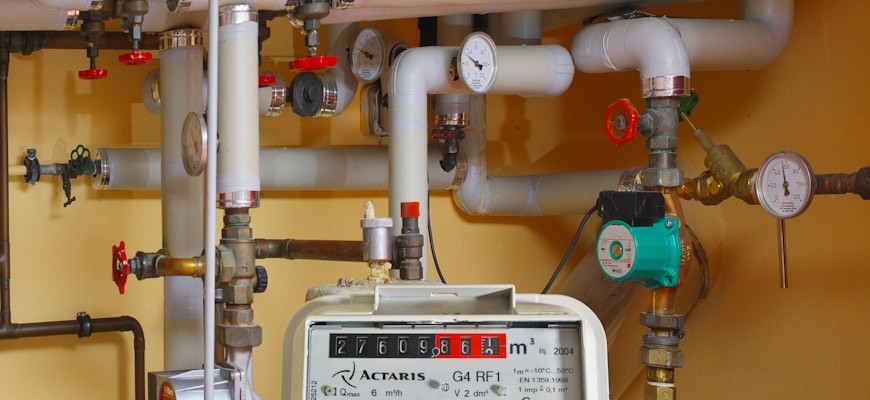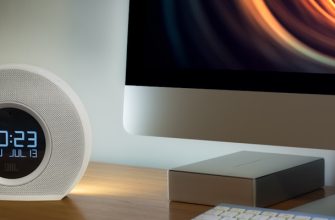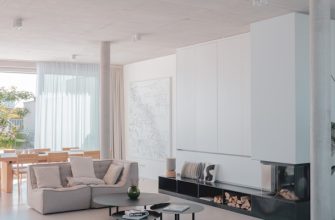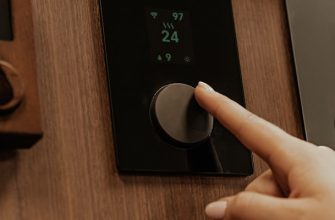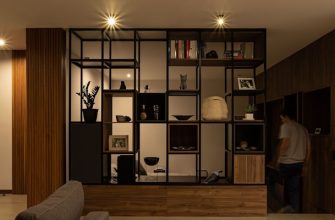- Revolutionizing Indoor Air Quality: The Rise of Intelligent Purification Systems
- Smart Technology Meets Clean Air: How AI is Transforming Home Purification
- Understanding the Benefits of Automated Air Quality Control in Smart Homes
- The Future of Home Comfort: Integrating Air Purification with Smart Home Devices
- Navigating the Options: Choosing the Right Intelligent Air Purification System
- Enhancing Health and Wellbeing: The Role of Intelligent Air Systems in Modern Living
Revolutionizing Indoor Air Quality: The Rise of Intelligent Purification Systems
In recent years, there has been a significant shift towards intelligent home air purification control systems, which are transforming the way indoor air quality is managed. These advanced systems utilize cutting-edge technology to monitor and enhance air quality in real-time, ensuring a healthier living environment. With the increasing awareness of the importance of clean air, intelligent purification systems have gained traction among homeowners seeking optimal air quality.
These intelligent air purification systems are equipped with sensors that detect pollutants, allergens, and other harmful particles in the air. Upon identifying these contaminants, the systems automatically adjust their filtration processes to optimize air cleanliness. This automation not only improves air quality but also reduces energy consumption, making them an eco-friendly choice for modern households.
- Real-Time Monitoring: Intelligent purification systems continuously assess air quality, providing instant feedback and adjustments for optimal performance.
- Smart Integration: Many of these systems can be integrated with smart home devices, allowing users to control air purification remotely through mobile applications.
- Energy Efficiency: Advanced features help minimize energy use, contributing to lower utility bills while maintaining high air quality standards.
- Customizable Settings: Users can tailor purification levels based on specific needs, such as allergy prevention or pet dander reduction.
Moreover, the rise of intelligent home air purification control systems aligns with a growing trend towards health-conscious living. By targeting specific indoor air quality issues, these systems provide tailored solutions that cater to individual preferences and lifestyles. Homeowners now have access to technology that not only improves the air they breathe but also enhances overall well-being.
In conclusion, the evolution of intelligent air purification systems represents a significant advancement in indoor air quality management. As more individuals recognize the impact of clean air on health, the demand for these innovative solutions is likely to continue rising. Investing in intelligent purification systems is not just a trend; it is a commitment to fostering a healthier home environment for everyone.
Smart Technology Meets Clean Air: How AI is Transforming Home Purification
In recent years, the integration of intelligent technologies into home air purification systems has revolutionized the way individuals approach indoor air quality. Smart air purifiers equipped with artificial intelligence (AI) not only enhance purification efficiency but also offer unparalleled convenience and adaptability to various living environments.
AI-driven air purification systems utilize advanced algorithms to analyze air quality in real-time. By monitoring pollutants, allergens, and other harmful particles, these systems can automatically adjust their operation to ensure optimal air cleanliness. This smart technology not only improves health outcomes but also enhances comfort within the home.
- Real-Time Monitoring: AI systems continuously track air quality levels, providing instant feedback and insights to users.
- Automatic Adjustments: Based on detected air quality, intelligent purifiers can modify fan speeds and filtration settings without user intervention.
- Remote Control: Many smart air purifiers can be controlled via mobile applications, allowing users to monitor and manage air quality from anywhere.
- Energy Efficiency: AI algorithms optimize power consumption, reducing energy costs while maintaining high purification standards.
- Maintenance Alerts: Intelligent systems notify users when filters need replacement, ensuring consistent performance and air quality.
The impact of AI on air purification extends beyond mere convenience. The ability to learn from user interactions and environmental changes allows these systems to evolve and improve their performance over time. As a result, homes equipped with intelligent air purification technologies can experience significant reductions in airborne contaminants, leading to healthier living spaces.
In conclusion, the fusion of smart technology and air purification sets a new standard for indoor air quality management. By leveraging AI capabilities, modern air purifiers not only protect against pollutants but also provide a seamless and efficient solution for maintaining clean air in homes. Embracing these innovative systems can lead to a transformative improvement in the overall quality of life.
Understanding the Benefits of Automated Air Quality Control in Smart Homes
Automated air quality control systems in smart homes offer numerous advantages that enhance both comfort and health for residents. These advanced systems utilize sensors and artificial intelligence to monitor and manage indoor air quality effectively. By continuously assessing pollution levels, humidity, and temperature, these systems ensure a healthier living environment.
One significant benefit of automated air quality control is the ability to reduce allergens and pollutants. Smart air purification systems can detect harmful particles and automatically engage purification processes, significantly lowering the presence of dust, pollen, and other irritants. This is particularly beneficial for individuals with allergies or respiratory conditions.
- Energy Efficiency: Automated systems optimize energy consumption by adjusting purification levels based on real-time data, thus minimizing unnecessary electricity usage.
- Convenience: Control of air quality can be managed remotely via smartphone applications, allowing users to monitor their environment from anywhere.
- Enhanced Comfort: By maintaining consistent humidity and temperature levels, these systems create a more comfortable living space, free from extreme fluctuations.
- Increased Lifespan of Appliances: Maintaining optimal air quality reduces the strain on HVAC systems, prolonging their lifespan and reducing maintenance costs.
Moreover, integrating automated air quality control into a smart home ecosystem enhances overall efficiency. These systems can communicate with other smart devices to create a cohesive approach to home management. For instance, when air quality dips below a certain threshold, the system can trigger air purifiers or adjust ventilation systems accordingly.
In summary, incorporating automated air quality control in smart homes not only fosters a healthier environment but also promotes energy efficiency and convenience. With the continuous advancements in technology, these systems are becoming increasingly accessible, making them a valuable addition to modern living spaces.
The Future of Home Comfort: Integrating Air Purification with Smart Home Devices
As the demand for home comfort rises, the integration of air purification systems with smart home devices is becoming increasingly essential. Intelligent home air purification control systems are designed to enhance indoor air quality while providing users with seamless connectivity and convenience. By incorporating these advanced technologies, homeowners can monitor and manage air quality effortlessly.
Smart air purifiers not only filter out pollutants but also communicate with other smart home devices. This interconnectedness allows for real-time adjustments based on environmental conditions. For instance, when a smart thermostat detects a rise in temperature, it can signal the air purifier to increase its filtration speed, ensuring optimal air quality throughout the home.
- Enhanced Monitoring: Real-time air quality monitoring provides users with valuable insights into pollution levels.
- Automated Control: Integration with smart home systems allows for automated adjustments based on user preferences or environmental factors.
- Energy Efficiency: Intelligent air purification systems can optimize energy consumption, reducing overall utility costs.
- Convenience: Users can control air purifiers remotely via smartphones or voice commands through virtual assistants.
The future of home comfort lies in the synergy between intelligent home air purification systems and smart technologies. As more households adopt these innovations, the focus will increasingly shift towards creating healthier living environments. With the ability to filter allergens, dust, and harmful particles, modern air purifiers are essential components of a comprehensive smart home ecosystem.
In conclusion, the integration of air purification with smart home devices not only elevates the standard of living but also promotes well-being. Homeowners are encouraged to explore the possibilities of intelligent home air purification systems to achieve a healthier and more comfortable indoor atmosphere.
Navigating the Options: Choosing the Right Intelligent Air Purification System
Choosing the ideal intelligent air purification system for a home requires careful consideration of various factors that influence performance and efficiency. An effective air purification system not only enhances indoor air quality but also ensures a healthier living environment. Understanding the available options is crucial to making an informed decision.
- Type of Filtration: Different intelligent air purification systems utilize various filtration technologies, including HEPA filters, activated carbon, and UV light. Each type has its strengths, targeting specific pollutants and allergens.
- Smart Features: Many intelligent air purifiers come equipped with smart features such as air quality sensors, mobile app connectivity, and real-time monitoring. These features allow users to track air quality and make adjustments accordingly.
- Room Size Compatibility: It is essential to select an air purification system that matches the size of the intended space. Systems are often rated for specific square footage, ensuring optimal performance in larger or smaller areas.
- Noise Levels: Noise can be a significant factor, especially in bedrooms or quiet spaces. Many intelligent air purifiers offer quiet modes, allowing for efficient purification without disruptive sounds.
- Maintenance Requirements: Regular maintenance is necessary for air purification systems to function effectively. Consider models with easily replaceable filters and low upkeep costs to ensure long-term usability.
Evaluating these aspects is vital in selecting the right intelligent air purification system. By prioritizing the most relevant features and capabilities, individuals can significantly enhance the air quality within their homes, leading to improved health and well-being. An informed choice can result in a cleaner, fresher living environment, making the investment in an intelligent air purifier worthwhile.
Enhancing Health and Wellbeing: The Role of Intelligent Air Systems in Modern Living
In today’s fast-paced world, maintaining health and wellbeing is more crucial than ever. Intelligent air purification control systems play a significant role in enhancing the quality of indoor air, ultimately contributing to improved health outcomes. These advanced systems utilize sophisticated technology to monitor and purify the air, ensuring a safe environment for occupants.
One of the primary benefits of intelligent air systems is their ability to detect and eliminate harmful pollutants. These systems are equipped with sensors that identify various airborne contaminants, including allergens, dust, smoke, and volatile organic compounds (VOCs). By continuously analyzing air quality, intelligent air purification systems can automatically adjust filtration levels, providing optimal air cleanliness.
- Real-time Monitoring: Intelligent air systems provide real-time updates on air quality levels, allowing users to stay informed about their environment.
- Energy Efficiency: These systems are designed to operate with minimal energy consumption, thus reducing overall energy costs while maintaining effective air purification.
- Smart Integration: Many intelligent air purification systems can seamlessly integrate with home automation systems, enabling users to control air quality through smartphones or voice commands.
- Health Benefits: By removing harmful pollutants, these systems contribute to better respiratory health, reduced allergies, and overall improved wellbeing.
The integration of intelligent air purification control systems into modern living spaces represents a significant step towards healthier indoor environments. As air quality continues to decline in many urban areas, the importance of these systems cannot be overstated. Investing in advanced air purification technology ensures that individuals can breathe cleaner, healthier air, which is essential for maintaining optimal health and wellbeing.
Furthermore, education about the advantages of intelligent air systems is vital. Homeowners and renters alike should be aware of how these systems function and the numerous health benefits they offer. By promoting awareness and understanding, individuals can make informed decisions about enhancing their living environments through intelligent air purification solutions.
